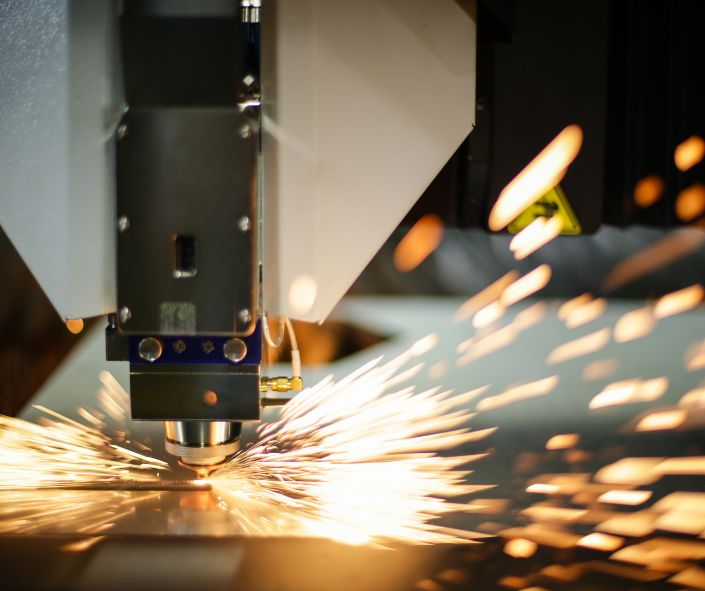Computer Numerical Control (CNC) which is a method of machine machining, has revolutionized engineering and manufacturing over the past few years. CNC Machining is a process which combines digital technology with traditional machining to create high-precision components in a variety of industries. This article explores the mechanics and advantages and diverse applications of CNC milling, while highlighting its revolutionary impact on modern engineering.
The mechanisms of CNC Machining
CNC machining is a subtractive manufacturing technique by which it is able to remove the material from a solid block or workpiece in order to achieve the desired shape. The software utilized to control the machine movements is pre-programmed. The code produced by CNC machines is dependent on the type of machine used as well as the complexity of the item. However, the underlying principle is the same: High-speed cutters precisely cut away any material that is left to create the finished product.

Precision is the main benefit of CNC processing. Its digital nature permits consistent and accurate production. This decreases the chance of the chance of human error while maintaining consistency across batches. This level of accuracy is essential in industries such as aerospace or medical devices.
The role of digitalised computers in CNC machine operation
CNC processing efficiency and precision are a result from the integration of digital technology. The software that is specifically designed for CNC machining automates all manufacturing processes. This software converts computer-aided design (CAD) models into a series of precise instructions, which the CNC machine then follows to create the part. These instructions define everything starting from the cut’s depth as well as the angle, and also the speed of the machine.
In industrial facilities with large scales computers are often integrated directly into CNC machines. This permits seamless communication and controls. This integration permits real-time monitoring, which ensures the highest performance and reduces downtime. CNC processing can be automated, allowing continuous operations, which increases productivity and reducing lead times.
CNC Machining: Its Advantages
CNC machining has many advantages in comparison to other methods of production. One of the main advantages is its capability to create intricate and complex parts with high precision. CNC processing is precise that eliminates the requirement for manual adjustments or the need to rework. This cuts down on waste and increases efficiency. Furthermore, CNC machines can operate continuously, which makes them suitable for high-volume production runs.
CNC machineries have another benefit that is versatility. A single machine can create diverse types of parts by simply altering the program. CNC can be adapted to any need, making it suitable for prototyping as well for mass production. This allows manufacturers to quickly respond to market demands changes.
The automated process of CNC machineries also enhances security in the workplace. The risk of injuries and accidents is reduced when manual intervention is not required. Furthermore, the constant quality of CNC-machined products improves reliability and performance, which contributes to the satisfaction of customers and credibility of the brand.
CNC Machining Services: Benefits to Industries
CNC machining is utilized in a myriad of industries. Each benefiting from its accuracy, efficiency and flexibility. CNC machines are employed in the aerospace industry to create vital components that must satisfy the strict requirements for safety and performance. CNC machines are used in the medical device industry to make complex implants and surgical instruments where precision is crucial.
CNC Machining can be used to produce engine parts including transmissions, intricate inside and exterior elements, and even more complex exterior and interior designs in the automotive sector. Electronics industry also benefit from CNC Machining, which is able to produce tiny, intricate parts for consumer electronic devices and communication equipment. The art and jewelry industries too make use of CNC technology to produce unique pieces and intricate designs.
The Future of CNC Machining
As technology advances in the field of technology, the capabilities of CNC machines are expected to continue to improve. The capabilities of CNC technology will be enhanced by technological advancements like multi-axis machine, additive manufacturing, as well as advanced materials. Machine learning and artificial intelligence will also likely increase the efficiency and precision of CNC processing.
In the end, CNC machining has profoundly affected modern manufacturing and engineering, offering unparalleled accuracy, efficiency, and the ability to be flexible. Its ability to make intricate parts with high accuracy is a crucial tool in a variety of industries. As technology develops, CNC machining will undoubtedly continue to play a crucial role in determining manufacturing’s future.